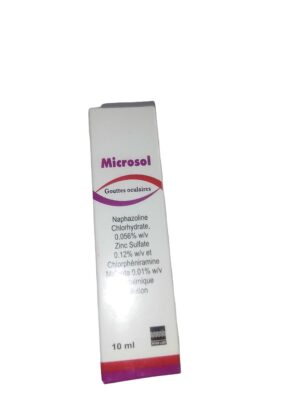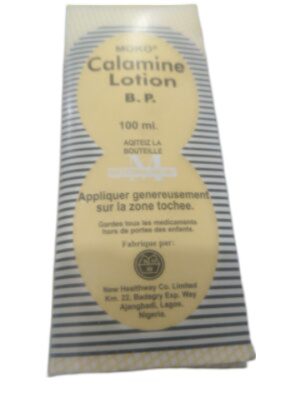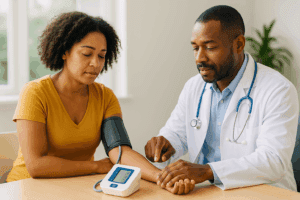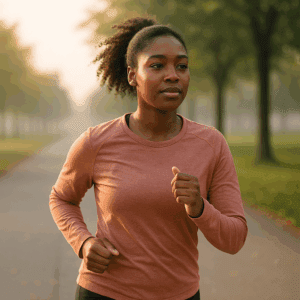Understanding Allergies: What to Do When They Strike

Please note: This article gives basic advice only. We don’t recommend self-diagnosis. Please chat with one of our pharmacists online — we’ll help you understand what’s really going on and what medicine is safest for you.
Contents
- What are allergies?
- Common types of allergies and what to do
- A. Nose allergies (hay fever)
- B. Eye allergies (itchy, watery eyes)
- C. Skin allergies and rashes
- D. Severe allergic reactions (emergency)
- When to see a doctor
- Safety tips when taking allergy medicines
1. What are allergies?
Allergies happen when your body reacts strongly to harmless things like dust, pollen, pets, perfume, or food.
You might notice:
- Sneezing or runny nose
- Itchy, watery eyes
- Rashes or hives (raised itchy bumps)
- Cough or wheezing
Most allergies are not dangerous, but they can make you very uncomfortable. The first thing to do is try to avoid what’s causing it and use simple remedies like rinsing your nose or eyes with clean water, keeping your room dust-free, and using the right medicines when needed.
2. Common types of allergies and what to do
A. Nose Allergies (Hay Fever)
How it feels:
You keep sneezing, your nose runs like water or feels blocked, your eyes or the top of your mouth may itch, and you might even feel tired. These symptoms usually get worse during dusty weather, harmattan, or when flowers are blooming.
What to do:
- Stay away from dust and strong perfumes.
- Rinse your nose once or twice a day with saline (salt water drops).
- Use a non-drowsy allergy tablet like loratadine or cetirizine once daily.
- If your nose feels blocked all the time, a nasal spray (like fluticasone) can help open your airways.
- Only use decongestant sprays (like xylometazoline) for no more than 3–5 days.
Recommended medicines (from our pharmacy):
B. Eye Allergies (Itchy, Watery Eyes)
How it feels:
Your eyes feel itchy, red, and watery, sometimes with a mild burning or gritty feeling. This often happens when you’re exposed to dust, smoke, or pollen.
What to do:
- Don’t rub your eyes — it makes things worse.
- Use a cold compress or splash clean water on your eyes.
- Try artificial tears or anti-allergy eye drops to relieve itching and redness.
- Avoid staying in dusty or smoky places.
Recommended medicines (from our pharmacy):
C. Skin Allergies & Rashes
How it feels:
You notice red, itchy bumps or patches on your skin. They may appear suddenly after using a new soap, cream, or food, or after an insect bite. The itch can be mild or severe, and sometimes the skin feels dry or irritated.
What to do:
- Stop using any new product that might have caused the reaction.
- For mild rashes or hives, take an antihistamine like loratadine or cetirizine.
- If your skin feels hot, red, or irritated, you can apply a soothing cream like calamine or a mild steroid cream (hydrocortisone).
- Avoid scratching — it can make things worse or cause infection.
Recommended medicines (from our pharmacy):
D. Severe Allergic Reaction (Emergency)
How it feels:
A serious allergic reaction can cause swelling of the lips, face, or throat, trouble breathing, dizziness, or chest tightness. This can happen within minutes of eating something, taking a medicine, or being stung by an insect.
What to do:
- Call for emergency help immediately.
- If the person has an EpiPen or adrenaline injection, use it right away.
- Do not wait or rely on pills or syrups — go straight to the hospital.
(Over-the-counter medicines are not enough for this kind of reaction.)
3. When to See a Doctor
Please see a doctor or speak to our pharmacist if:
- Your allergy doesn’t get better after 3–5 days of treatment.
- You have wheezing, chest pain, or shortness of breath.
- Your eyes become painful or very red.
- You have frequent or long-lasting rashes.
- You are pregnant, caring for a child, or have other medical conditions like asthma or diabetes.
4. Safety Tips for Allergy Medicines
- Read the label: Some cold and allergy medicines contain more than one ingredient — don’t double up on similar ones.
- Non-drowsy tablets like loratadine or cetirizine are best for daytime use.
- Chlorpheniramine (Piriton) may cause sleepiness — take it at night if needed.
- Nasal sprays (like fluticasone) work best when used daily for a few days.
- Decongestant sprays (like DRUTIVIN) should not be used for more than 5 days in a row.
- Hydrocortisone cream is for short-term use only — stop if the skin gets worse or infected.
Final Thoughts
Allergies can make you feel tired and frustrated, but with the right care, most people feel much better quickly.
Remember — if you’re not sure what’s causing your allergy or which medicine is right for you, chat with one of our pharmacists online. We’ll help you find safe, affordable products and tell you what to do next if your symptoms don’t improve.
You don’t have to suffer through allergies — help is just one click away!
You may also like
- A Practical Guide to Weight Management, Weight Loss, and Nutrition
- A Guide to Preventive Health & Everyday Wellness
- Women’s Health, Made Simple: A Simple Guide for Healthy Living
- Men’s Health, Made Simple: A Guide to Feeling and Living Better
- A Simple Guide to a Healthy Pregnancy: What Every Expecting Mother Should Know







